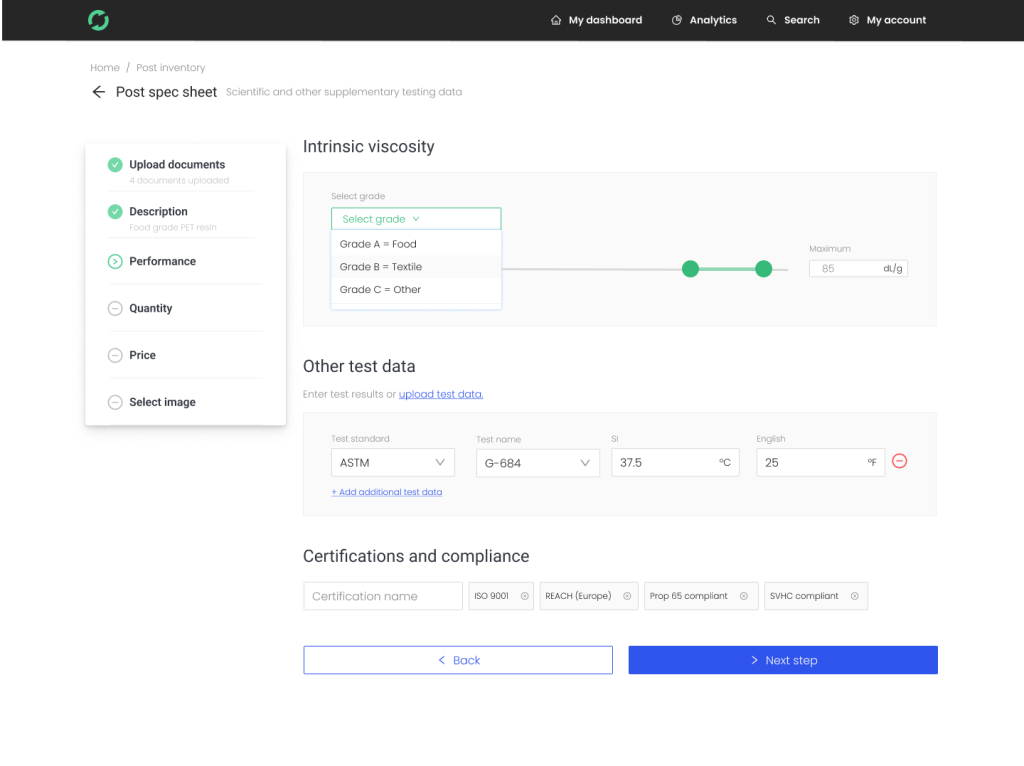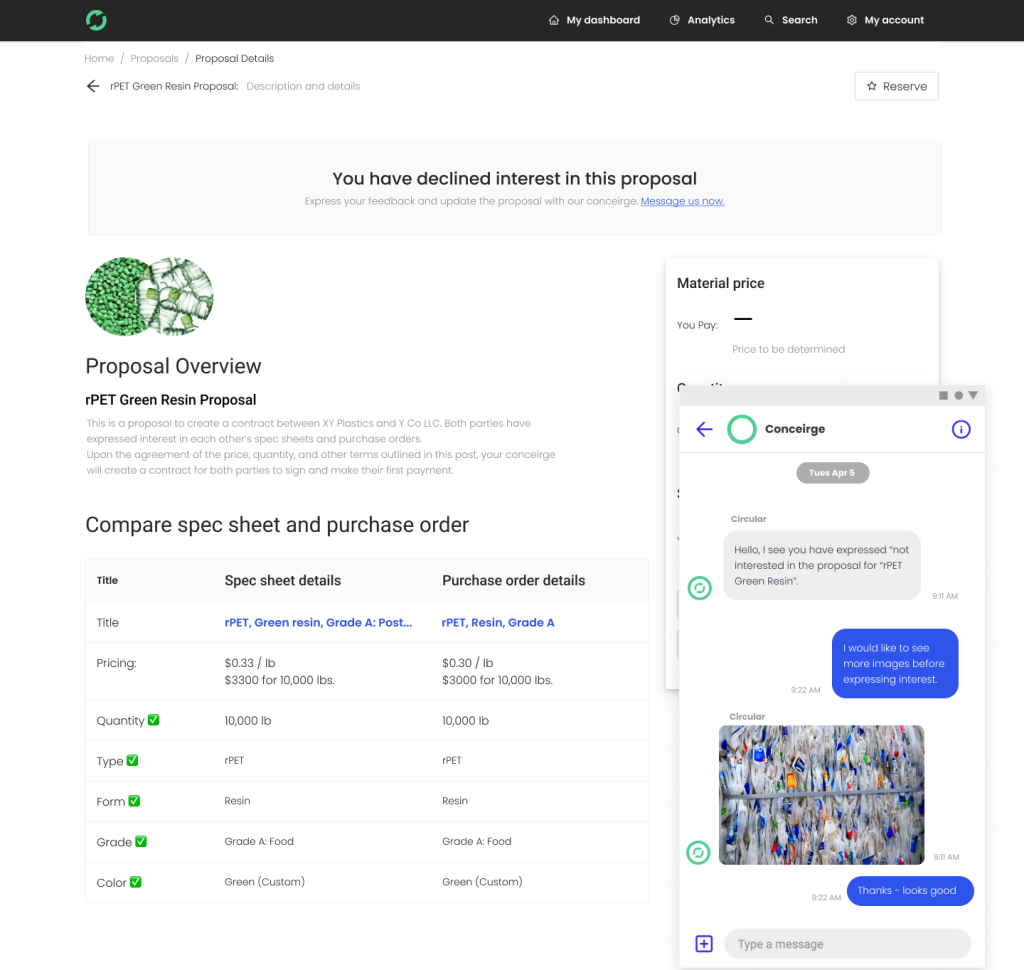Client
An early stage marketplace startup for the exchange of recycled materials.
The challenge
The current marketplace for exchanging recycled materials is largely offline and non-digital – calls are placed and paper spec sheets are exchanged.
It is highly relationship driven arena. Buyers are often limited by the number of sellers they know. Both buyers and sellers do not have awareness of what other opportunities may be available on the open market.
My Role
Designer, working closely with another designer. We presented our work multiple times weekly to the founder and their partners.
We iterated quickly, worked closely with engineering, and this startup launched its digital marketplace within 4 months of founding
Approach
- Interaction and interface design
- Quick iterative cycles, with stakeholder feedback
Data entry
In order to sell recycled goods, sellers need to have their goods scientifically analyzed. Based on these data points, potential buyers can assess whether a specific supply will meet their needs.
The results can be complicated— each test has differing units, some have tolerances and measures of certainty. While the results took many forms, the test themselves were standardized.
We used a combination of techniques to simplify the data entry. For common, nearly always required tests, we designed for three ways of entering data: categories that would act as a shortcut to populate the data entry fields, a slider for fine controlling the values, and text entry to allow those with finely tuned values (with more significant digits) to enter them.
For the wider array of tests, we designed an interface where a user could choose a testing standard and the testing methodology. With those two pieces of data, we could determine what additional data points were needed and what their units were. This ensured consistency across listings— avoiding some of the workarounds users use to avoid typing a degree sign or other Greek character.

The current marketplace was relationship driven. In order to lower the friction to entry, we designed the marketplace to leverage existing relationships. Further, we added a “concierge” feature wherein new business relationships were cultivated through a personal connection.
The concierge was entirely human— no chatbots or chatGPT here— and they would help new buyers find viable sellers, even outside of the buyers current network. The concierge fulfilled a vital role in helping the digital marketplace feel more like the current system of relationship building they were used to.
Further, many transactions required the exchange of additional specific scientific data. During the listing process, common data points were logged; however, often times before a deal could be closed additional testing would be necessary. The concierge would facilitate the exchange of this highly specific data and gather additional information, sparing the seller from the tedious process of listing 10-50(!) additional pieces of scientific data that may not have even be necessary, depending on the buyer.

The end results
The startup launched the fully functional marketplace within four months, and immediately on boarded their first buyers and sellers.

